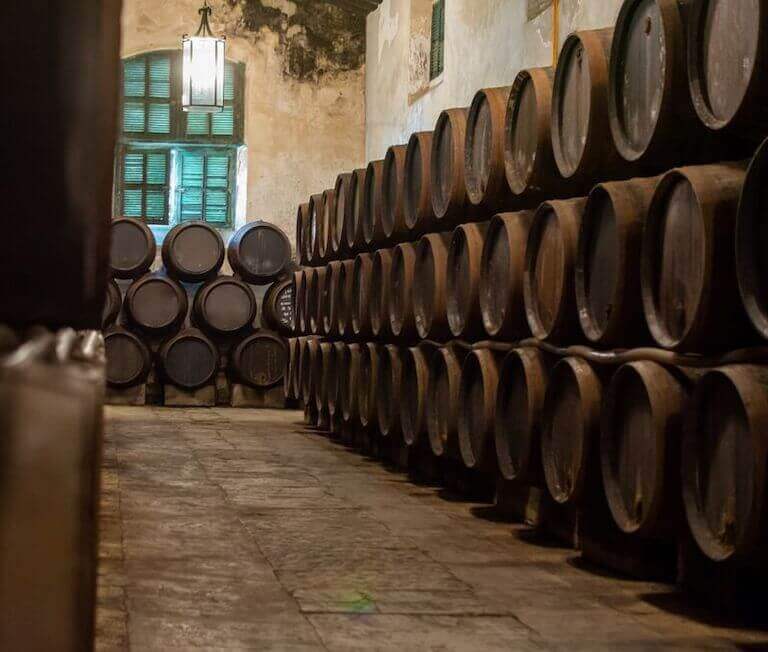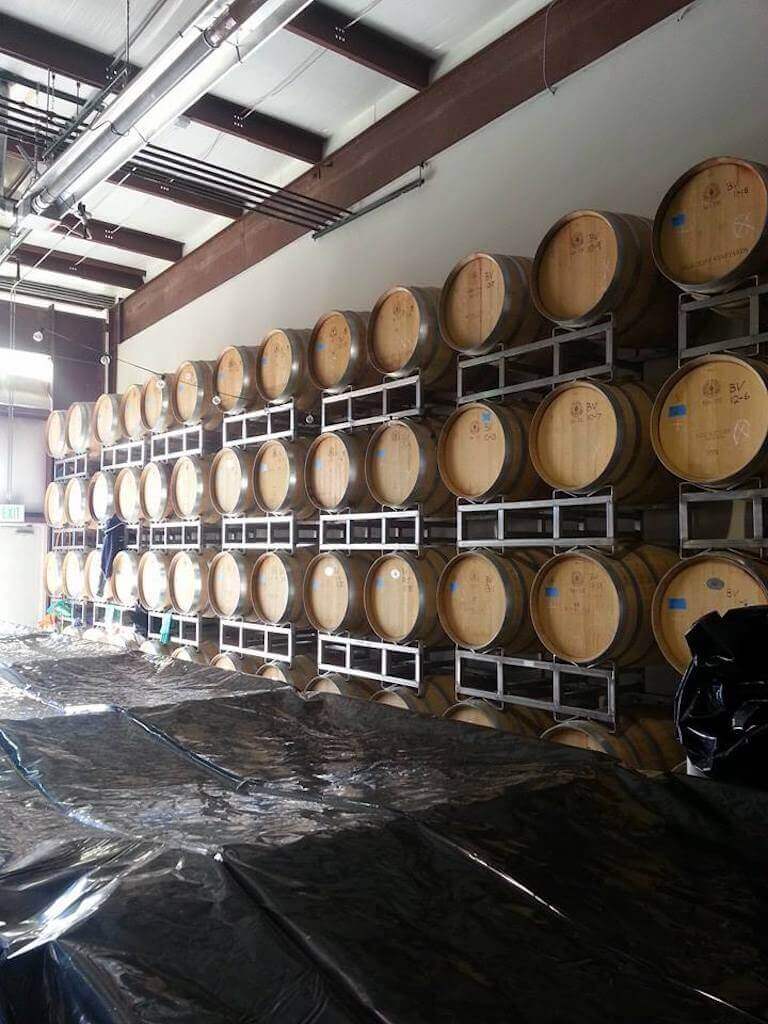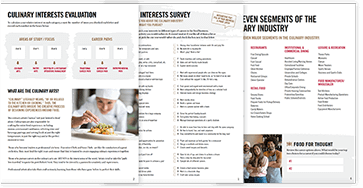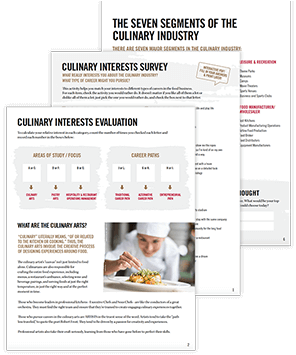If you pore over wine bottle labels and spend every vacation in wine country, it might be time to consider becoming a sommelier.
The hospitality and restaurant industry is full of opportunities for career wine aficionados and sommeliers. Read on to find out how to become a sommelier or wine professional for a restaurant, catering company, winery, and more.
Key Steps to Becoming a Sommelier
At the most basic level, a sommelier is a wine steward. They may use their vast knowledge of wine to curate wine lists, make recommendations to restaurant guests, and train the rest of the restaurant staff on proper service.
There are a variety of ways to start a career in wine, but if you want to become a professional sommelier, you’ll need education, experience, and certification.

A sommelier knows the ins and outs behind winemaking.
1. Pursue a Self-Directed or Formal Wine Education
Some sommeliers self-direct their education, learning about wines in their own way and at their own pace. You may choose to study through careful tasting, noting flavors, origins, and vintners. You may also choose to read books, visit wineries, or attend seminars and tastings.

Touring wineries can teach the aspiring sommelier about the wine production process.
Chef Gregory Bonath, an instructor at Auguste Escoffier School of Culinary Arts and certified sommelier, stresses the importance of sampling different wines. To start out, he recommends purchasing a single varietal from several different regions to practice noting the differences.
“Pick three Chardonnays from three different countries, but don’t read the back of the label. Go home and think, ‘This really does taste like butter. Why?’ And then read the back of the label and search [for why it tastes that way]…That’s the best way to start learning about [wine].”*
Gregory Bonath, Escoffier Lead Chef Instructor and Certified Sommelier
Many also pursue formal education for their sommelier training. Sommelier courses may offer a more well-rounded education to help prepare you specifically for certification.
Some sommeliers and wine professionals also get their start in culinary school. A culinary school education from Escoffier in fundamental culinary elements like flavor profiles and different food cultures may cross over to the wine industry as well.
A degree in Hospitality & Restaurant Operations Management may offer useful skills such as professionalism and service standards, catering and event operations, cost control and purchasing, and beverage service operations. These skills could come into play in the day-to-day work of a sommelier!
The Essential Culinary Career Survey
The Essential Culinary Career Survey
What's your ideal culinary career: Fine dining? Your own restaurant? Pastry? Get our self-evaluation survey to find out!

We’ve compiled a checklist of all of the essential questions into one handy guide: career options, culinary interest surveys, educational opportunities, and more.


2. Get Professional Experience in the Wine and/or Service Industries
While pursuing your education, industry experience can help you bridge the gap from theory to practice.
Some sommeliers get their start as bartenders or bar managers in casual dining restaurants. Others shadow winemakers at wineries to learn all they can. Working in a restaurant that has a sommelier on staff can also help you observe the role and perhaps get your foot in the door.
Chef Gregory explains the importance of experience, whatever that looks like for you, when you set your sights on becoming a sommelier:
“A lot of it is just starting off in the industry. If you’re waiting tables and you’re serving wine, … you have to do your part to understand the wine menu. You’re already working around wine, even though your job isn’t specifically in that. If somebody wanted to be a sommelier in a Michelin-star restaurant, you’d have to have the education piece, but a huge, huge amount of it is experience as well.”*
Gregory Bonath, Escoffier Chef Instructor And Certified Sommelier
Industry experience can allow you to practice working with guests, making suggestions, offering tastings, and executing wine service. These are some of the skills that a great sommelier will practice again and again.
Finding a mentor in the field who shares your passion for wine can be an excellent way to extend your education, whether your mentor is a chef or wine expert. If you’re in culinary school, ask your Chef Instructors questions about wine. They may have expertise in creating wine pairings, curating menus, and cooking with wine. At Escoffier, you’ll find Chef Instructors who are certified sommeliers. And when it’s time to choose your industry externship, look for a restaurant with robust wine operations and wine experts on staff.

Working under a certified sommelier or an experienced wine professional can be a path to greater wine experience.
3. Earn Your Sommelier Certification
Some sommeliers work in restaurants or wineries without formal certification. But to call yourself a licensed sommelier, you need to pass exams to demonstrate your expertise. Earning this certification may make it easier to find a job, as some establishments will require the credential as a condition of hiring.
Exams are offered by a number of certifying bodies, including the Court of Master Sommeliers, the Wine & Spirit Education Trust, and the National Wine School.
Each certifying body has its own levels and testing requirements, but there are usually four to five ranks. If you choose to get certified through the Court of Master Sommeliers, the certification levels look like this:
| Level 1 Certification | Introductory Examination Demonstrates basic knowledge of terminology, wine regions, and grape varieties. |
| Level 2 Certification | Certified Sommelier Examination Demonstrates proficiency in table-side service and salesmanship, tasting to identify four wines, and wine theory. Earns the credential of “Certified Sommelier.” |
| Level 3 Certification | Advanced Sommelier Examination Demonstrates additional proficiency in wine theory, service of different types of wines, and blind tastings. Earns the credential of “Advanced Sommelier.” |
| Level 4 Certification | Master Sommelier Examination Includes a verbal exam, tasting six different wines, and a difficult service exam. The pass rate for this exam is only around 10%! Earns the credential of “Master Sommelier.” |
“When you go up certain levels, it’s not just about the grapes and where they come from. You also get into the climate, and the way the sun’s facing on the hill, the soil, the moisture, the humidity. You get into all the other aspects that make the wine taste like it does, not just specifically what the grape is. So, the higher that you build the levels, the more you understand everything that goes into the bottle from the human aspects to the nature aspects.”*
Gregory Bonath, Escoffier Chef Instructor And Certified Sommelier
It takes time to earn the credentials and experience to become a master sommelier. But when you do, you may be able to work in a fine dining or Michelin-starred restaurant.
Day-to-Day Life as a Sommelier
Just as having a culinary degree doesn’t automatically make you a chef, a sommelier certification doesn’t make you a sommelier. Most professionals agree that a sommelier is an expert in wine who works with wine daily.
Sommeliers often work in restaurants—typically in fine dining. They may curate the wine list, play a role in menu creation, and decide how wines are served. They may ensure proper wine storage, and train wait staff to serve wine and make recommendations to guests. They’re knowledgeable about complementary pairings and tasting notes, but also about how wine is made and the cultural significance of every bottle.
Sommeliers may also work with chefs and other kitchen staff. In a restaurant setting, chefs, servers, managers, and sommeliers may work together to create a complete dining experience that often starts with great wine and ends with a great dessert.

Sommeliers may have a guest-facing role, but they often work behind-the-scenes as well to create a strong wine program.
Alternative Careers in the Wine Industry
There are many careers in wine beyond the role of restaurant sommelier! Some wine experts work in tasting rooms, sharing a specific winery’s products with visitors. Sommeliers may teach courses to others who take an interest in wine. They could also work with caterers and event planners to curate wine menus for gatherings, or freelance for new restaurants to create their wine lists.
Wine-loving entrepreneurs could start their own wineries. Or they could become wine influencers or wine reviewers, offering honest assessments of wine to the world. For these careers, an education in sales, marketing, research, and design could supplement a wine background.
Getting Started as a Sommelier
There is no single path to becoming a sommelier. But education can be a great place to start.
In addition to sommelier training, a culinary arts degree could prepare you for assessing flavor profiles and working closely with chefs. Or a degree in Hospitality and Restaurant Operations Management could prepare you for managing wine costs, tracking inventory, and providing stellar service.
Contact us today to explore these programs and see where they could fit in with your sommelier goals!
To learn more about starting a career in hospitality and restaurant operations management, read these articles next:
- Careers a Hospitality & Restaurant Operations Management Degree Can Prepare You For
- What Are the Types of Culinary Degrees and Diplomas?
- What is Food and Beverage Management?
This article was originally published on July 28, 2021, and has since been updated.
*Information may not reflect every student’s experience. Results and outcomes may be based on several factors, such as geographical region or previous experience.

 “Pick three Chardonnays from three different countries, but don’t read the back of the label. Go home and think, ‘This really does taste like butter. Why?’ And then read the back of the label and search [for why it tastes that way]…That’s the best way to start learning about [wine].”*
“Pick three Chardonnays from three different countries, but don’t read the back of the label. Go home and think, ‘This really does taste like butter. Why?’ And then read the back of the label and search [for why it tastes that way]…That’s the best way to start learning about [wine].”*